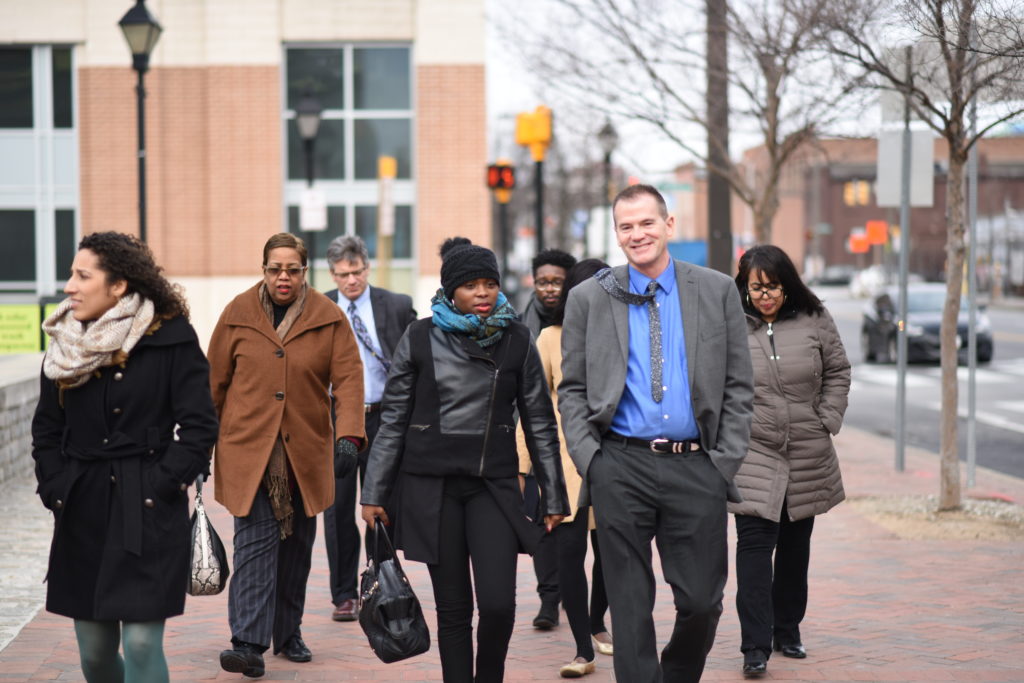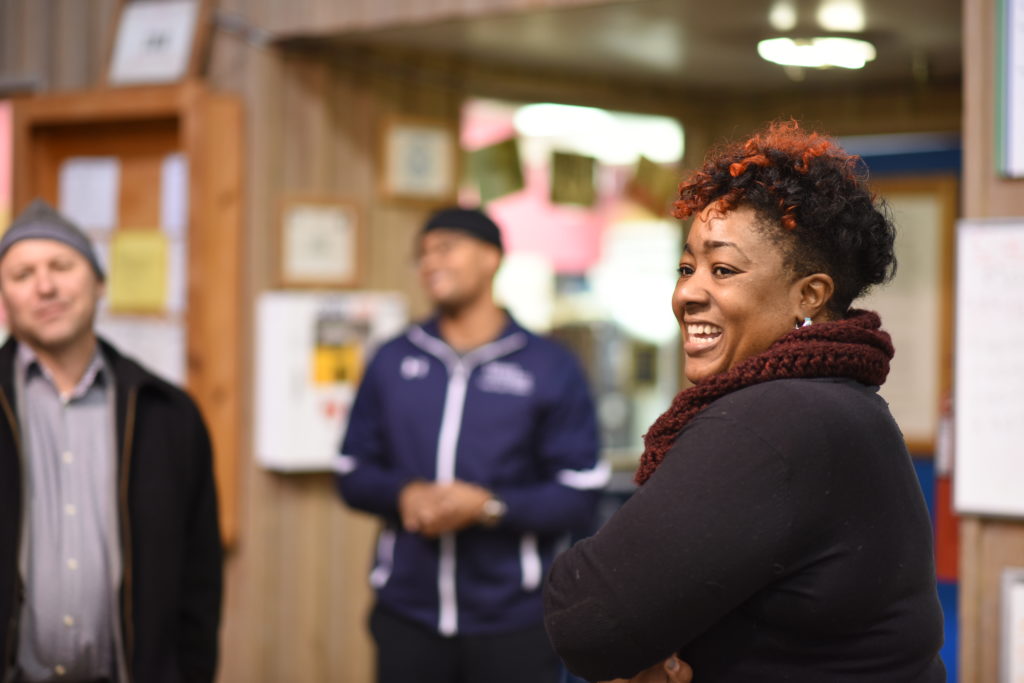In a Detroit neighborhood, families live with extreme flooding, molding and water shut-offs as part of their every day. More than 500 miles away, in one of Baltimore’s lowest-income communities, residents experience full weeks without power each year. Despite the three state lines and varying challenges that separate the two cities, community leaders have turned to one another to strengthen both their resilience strategies and their commitment to social equity.
This is where we come in.
The Institute for Sustainable Communities (ISC) created its Partnership for Resilient Communities program to connect communities wrestling with similar challenges to act as partners, collaborators and sounding boards in their pursuits of community-driven resilience. We provide on-the-ground organizations with the strategic resources and technical knowledge to shape and lead resilience projects born from the voices and priorities of underserved communities in their cities.

Eastside Community Network in Detroit and the Living Classrooms Foundation in Baltimore are two dynamic organizations with strong histories of leading positive transformations within their communities. Under the Partnership for Resilient Communities, they are rolling out innovative green infrastructure and clean energy projects.
These initiatives tackle long-standing challenges in a new way, charging head-on through unknown terrain to navigate technical, social, economic and administrative roadblocks and opportunities. ISC is right there along the way, facilitating breakthroughs with customized technical assistance and peer learning opportunities. We deeply believe that one of the most powerful tools we can provide is connection and access between one community and the other.

In February, we brought the Eastside Community Network and Living Classrooms Foundation together for the first in a series of peer learning workshops. This event, co-facilitated by the Movement Strategy Center, connected the organizations not only with each other, but with local government, peer community groups and national experts from the ISC network to collaborate on innovative solutions to challenges big and small, cross-cutting and place-based.
These intimate, small-scale workshops are built on the pillars of immersion and engagement. Each organization has the opportunity to experience first-hand the other organization’s challenges and communities before brainstorming strategies as peer consultants. The fresh ideas and key takeaways from this first workshop have already led to on-the-ground advancements and expansions for both teams.
As Detroit and Baltimore continue to scale-up their green infrastructure and clean energy projects through shared learning, we are committed to helping other vulnerable communities across the U.S. grow from these examples of community resilience. We will be disseminating resources and looking to connect other communities driven to improve the lives of their residents through resilience projects.
Since our founding, ISC has valued peer learning as one of our strongest mechanisms for creating change. After all, who better to equip communities with the tools for building sustainability and resilience than other communities that are working through – or have already overcome – similar challenges? Even between peers with different backgrounds and initiatives, a fresh outlook from a new perspective can offer unexpected and transformative solutions.
Eastside Community Network and Living Classrooms Foundation are now cultivating a strong relationship and productive partnership – rooted in trust and their shared mission to improve their communities – that can span any distance.
